SUSTAINABLE HUMAN DEVELOPMENT
The year 2024 was one in which the Multi-Partner Fund prioritised initiatives aimed at accelerating the Comprehensive Rural Reform (RRI, for its Spanish acronym). This reform seeks to transform the Colombian countryside by closing the gaps between rural and urban areas in three main aspects:
- The policy of access to and use of the land, and focused on the redistribution of the property and formalization of land in the prevention of land conflicts;
- Development Programs with a Territorial Approach (PDET), that foster citizen participation to improve the state intervention in 170 municipalities affected by the violence;
- The National Plans for the Reform of Rural Integral aimed at reducing the gaps between the countryside and the city, in the area of social rights and rural poverty.[1]
The implementation of the reform rural integral of the point 1 of the Agreement has focused significant efforts the state. However, the lags have been observed in the verification report of the Technical Secretariat of the International Component of Verification of the Agreement, the Instance Ethnic, the Instance of Gender and the Verification Mission United Nations, among others.
8 years of the implementation of the Agreement, the access to the property of the land, one of the main themes of the RRI, it remains a big challenge in the key of effective enjoyment of the rights of the rural population in colombia. Especially the quantitative targets of the land purchases have been difficult to meet, in part by objective conditions in the land market, and in part because it is a public policy that in some of their dimensions is unprecedented and needs to methods that ensure institutional, legal, social, and ecological decisions.
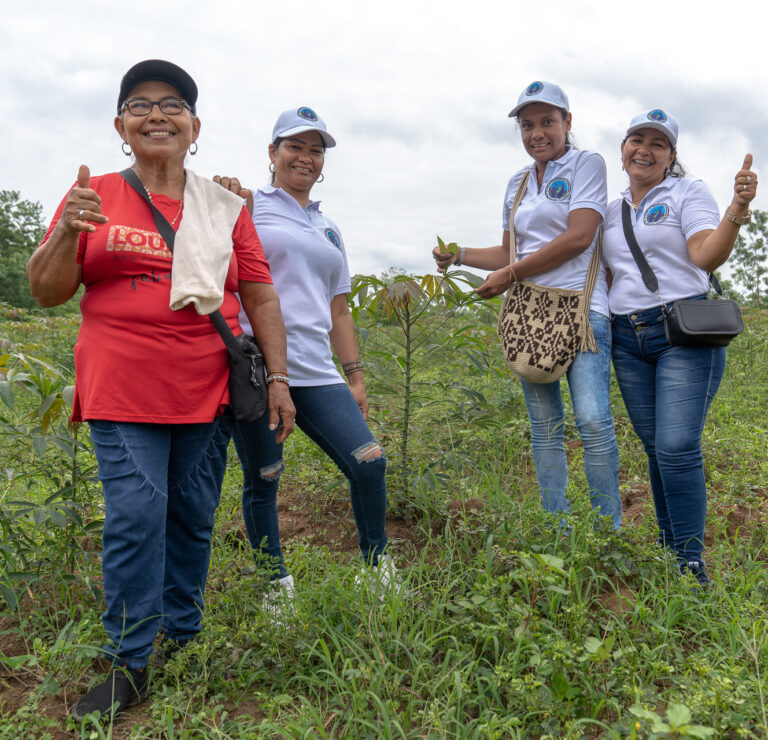
Due to the importance of the Fund recognizes in to support the government of Colombia in order to advance in this topic, in 2024, priority was given to two key investments. The first is focused on boosting the purchase of a qualified land, and the second in place of jurisdiction agrarian. With these investments, catalytic, is expected to generate a strategic input to progress significantly in such essential aspects to transform the rural areas in Colombia.
[1]Fifteenth report of verification of the implementation of the Peace Agreement, the technical secretariat of the international component of verification, in https://cinep.org.co/wp-content/uploads/Decimoquinto_informe_ST_v3.pdf
Purchase of land qualified
On the component of risk policy, consolidated an array with more than 200 legal rules, and 1000 standards of due diligence, and the contents of the administrative acts by which avoid the risks that would lead to the collapse of any of those rules.
In the component of risk socioecosistémico, he built a battery parameterized 18 risk variables related to the notion of dignified life for rural extended: unmet basic needs, climate change risk, the presence of accidents, mines, GINI index, multidimensional poverty rural coverage in services, among others, that allow you to calculate when there is a risk biophysical and socio-economic. This analysis seeks to reach the village level in the final model, in order to obtain a more accurate analysis.
The component of risk institutional consolidated a first version of the model calculation of the risk with the ability to identify blockages and buildup in the purchase process.
In addition, it was able to do the parameterization advance of some risks such as those associated with the absence of a gender approach, the absence of authoritative information on safety and the absence of reliable information obtained from potential vendors. For this, we have made a policy paper (normative documents) with specific guidelines on these risks cross.
[2]It is the preliminary version of the final model that warn you when the process has a risk and provide protocols or actions specific to prevent its realization or mitigate it.
On the approach of gender
Policy paper guidelines for the purchase of land with a gender approach.
The object of this instrument is to contribute to overcoming the absence of criteria that protect legally the position of rural women both as the subject of the purchase process and in the selection of land potentially for which rural women.
Policy paper to modify the Decree 033 2025.
El objetivo es incluir el enfoque de género en la política de compra. Esto debido a que el análisis encontró que existe una desigualdad en el acceso y formalización de la propiedad rural debido a:
- Lack of allocation of means and resources that enable the economic empowerment
- Little redistribution and the remuneration of the work of careful
- Discrimination intersectional
By this, it raises modify the decree to be generated geodata and indicators by sex to monitor the processes of purchase, also to that in the initial stage is to collect information on the vocation of the premises, the existence of natural resources and materials, and generate a distribution equal to men and women based on this diagnosis, generate data and indicators that incorporate criteria interseccionales documenting the purchase, and the redistribution of work to rural and community care, from the same process of purchase.
On security and reputational
Project of a decree for the transformation of the Committee of Built-in Intelligence to the Restitution of Land (CI2CRT).
This Committee was created for the titling and land restitution, and for that, also outside an instance advisor of the ANT in the field of security. With this, it supports the decision to purchase a property-specific, and thus covers the need for guidelines to be qualified and reliable on the topic.
Policy paper and a draft agreement with UNODC.
This will allow the ANT access to a database of profiles of suspects, improving the efficiency in the detection of risks that affect the legitimacy of the purchase process and for the entities in charge of the purchase of land have specific guidelines of safety that need to be taken into account.
Interview to the National Land Agency -ANT and the University of the Andes on the importance of the tool that is being developed with support from the Fund, and its strategic input for the purchase of land in the country.
Lessons Learned
The high dispersion of the information for the purchase of land in different entities, as well as the different status of the status of this information (physical or digital) delayed the process of diagnosis and left evidence of restrictions, technological and administrative of the different entities that make use of the tool mapping for the identification of risks associated with the purchase of land for the IRS.
Against this contingency the different entities disposed of staff to support the management of the documents, as well as designed a system of comparison between the risks that are already consolidated and those that may occur in the future based on the documentation collected. The Array with more than 200 legal rules which sends you alerts when the process may have some kind of risk. The matrix was completed with information from the ANT based on real cases of risks that have already occurred. The ANT has made available to the project staff and infrastructure to accommodate this information will be supplemented with the wide array of risk that will be hosted on the UPRA.
Jurisdiction Agrarian key to progress in the transformation of the rural conflicts
In the Agreement of 2016, for the creation of mechanisms for the resolution of disputes over tenure and use of land and established a new jurisdiction on agrarian
“with mechanisms to ensure that access to justice that is flexible and appropriate for the rural population in poverty, with legal advice and special training for women about their rights and access to justice, and with specific measures to overcome the barriers that impede the recognition and protection of the rights of women on the earth.”
To comply with this point of Agreement, by the act legislative 03, 2023, was created from the jurisdiction of the Agrarian and Rural – JAR in Colombia, which aims to precisely resolve the rural conflicts in a peaceful manner, with specialized judges in the matter, and thus guaranteeing the access to agile and timely justice to the rural population.
This new jurisdiction requires that you create a system suited to rural conditions, and takes into account also the approaches of gender, ethnic and territorial. It is by this, that the Fund in 2024 prioritized support to the process of enlistment and early implementation of the Jurisdiction Agrarian, to ensure that it has what is necessary to start operations in the country.
This bet will allow the momentum catalytic and strategic JAR for your start-up from three dimensions:
- The strengthening of the knowledge of the JAR for the judges and rural communities, with emphasis on the participation of women in rural areas and ethnic communities;
- The strengthening of a path of institutional articulation to improve the flow of information between the judges and the national entities and territorial approach to the cases and land conflicts;
- Delivery to the Ministry of Justice of a compilation of recommendations for the launch of the JAR and, thus supporting the implementation of the first judicial District agrarian, which will operate in Tunja with five circuits agricultural and rural: Cartagena, Pasto, Popayán, Quibdó and Tunja.
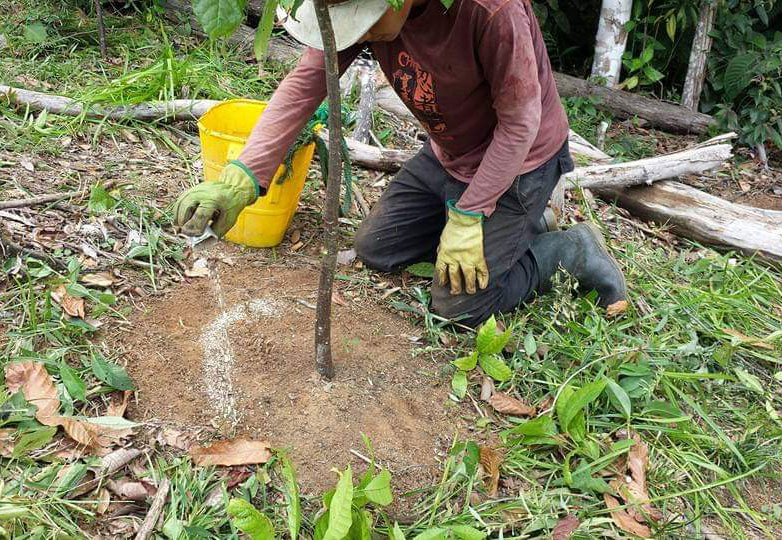
This bet gives priority to the analysis and direct work with the Caribbean region, specifically in the region of Montes de María, where the Ministry of Justice has prioritized the implementation of the JAR with the creation of the first court in that region.
It highlights that to 2024, was the construction and socialization of the structure of the guide for the access and operation of the Justice with key stakeholders, counting with the participation of the Ministry of Justice and the Law, the Ministry of Agriculture and Rural Development, the office of the Ombudsman, the National Land Agency and the Superintendence of Notary and Registry. This effort, which aims at the institutional articulation, was allowed to pick inputs and recommendations for the development of this guide.
Also was able to perform a focused analysis in the targeted municipalities (Carmen de Bolivar, Zambrano and St. John of Nepomuk), to identify the social dynamics, barriers, limitations, risks or conflicts that may impact implementation of the JAR, linking the involvement of various regional actors to contribute to the establishment of the trust territory, particularly of women and ethnic communities. The three targeted municipalities also have tabs context of the main needs of the communities in terms of Jurisdiction on Agrarian and Rural.
![]() The JAR seeks to recognize rural women and peasant women as a subject of protection given the inequalities and barriers of gender persistent in rural areas of the country; to this end, it seeks to mitigate risks that may affect them in their right to access to justice with a gender approach, which involves the actions of judges/justices and judges who can make decisions and administrative and judicial that allow to settle disputes over the ownership, use and tenure of land, from quick responses, timely and free.
The JAR seeks to recognize rural women and peasant women as a subject of protection given the inequalities and barriers of gender persistent in rural areas of the country; to this end, it seeks to mitigate risks that may affect them in their right to access to justice with a gender approach, which involves the actions of judges/justices and judges who can make decisions and administrative and judicial that allow to settle disputes over the ownership, use and tenure of land, from quick responses, timely and free.
This contribution will be materialized in 2025 when commissioning of the JAR is a reality, with judges strengthened and with the rural community informed about the path to be able to bring to this court its agrarian conflicts, allowing for a transition towards the transformation of the colombian countryside.
Lessons Learned
The bet of the Fund by surrounding processes of institutional change during the project design and approval has represented risks to the interventions supported, but seeks to channel the strong support of the international cooperation necessary transformations for the country, which, thanks to this support manage to get ahead, to have the continuity and sustainability in the framework of a policy of the State.
This is the example of the Jurisdiction Agrarian, a firm commitment of the partners of the Fund to strengthen and generate the conditions of enlistment in the territories, strengthening the judiciary and the community to promote informed participation in a process that seeks to generate real change in the colombian countryside.
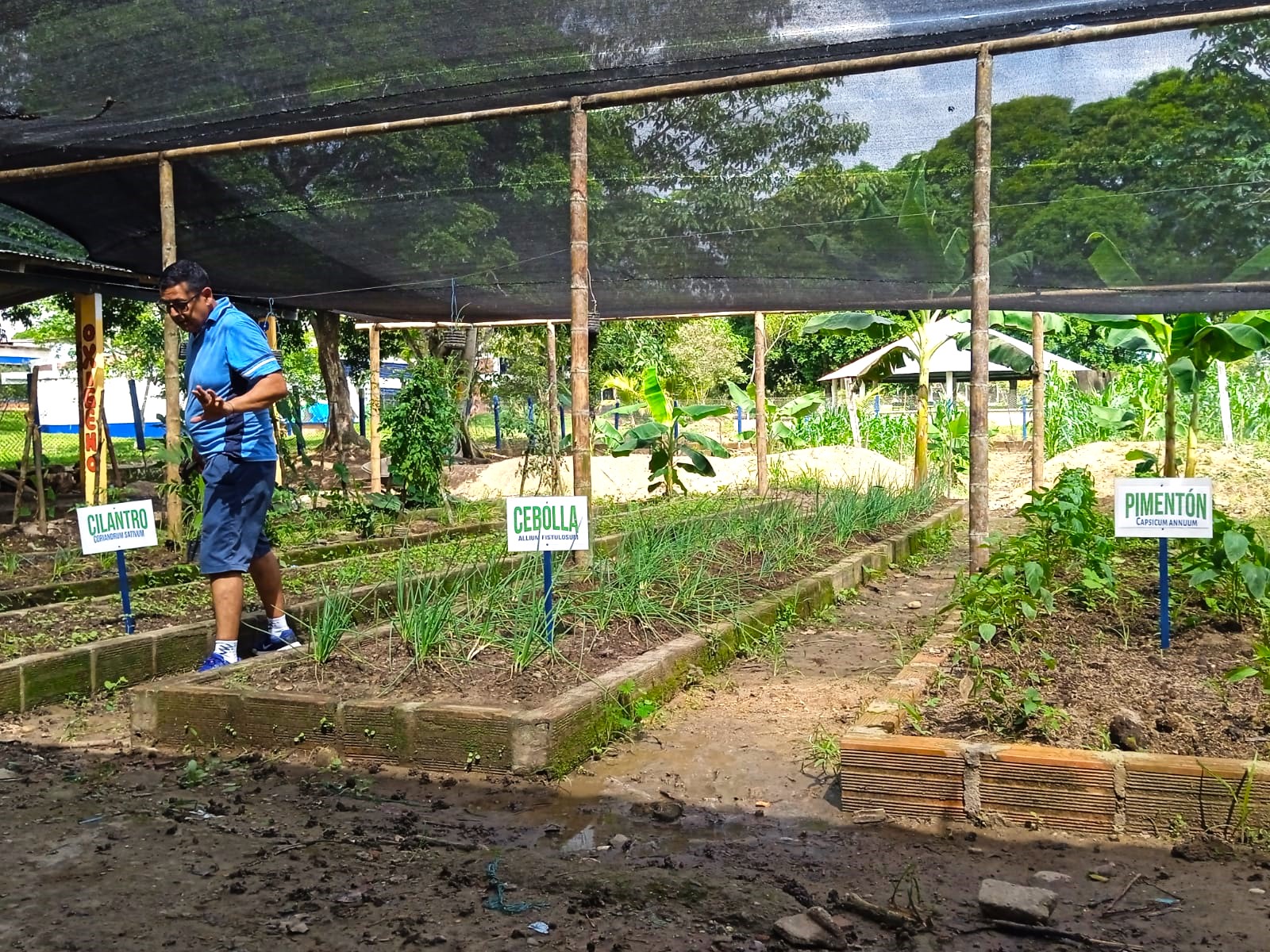
The PDET continue to be a priority in order to advance in the transformation of territorial - Catatumbo
Since the signing of the Agreement in 2016, the Fund has prioritized initiatives that promote the implementation of the PDET, one of the key mechanisms to achieve the structural transformation of the territories. In previous reports it has been emphasized in several comprehensive interventions that have allowed not only the implementation of initiatives, but around these, you build the trust of communities at the same time that it contributes to its development, carving out the path towards the transformation of their realities.
In 2024, the Fund continued its strong support in Catatumbo, where on the one side closed the intervention in support of the marketing chain of cocoa and other products from the region (with the support of FAO, UNODC and UNIDO), with important results, not only of community building, but relations and agreements with the private sector and insurance will be the basis for the implementation of the Covenant Catatumbo; and continued to support the acceleration of the implementation of the PDET by strengthening the capacities of the municipalities and the Department for the review and update of the instruments of territorial ordering (with the support of UNDP and UNEP).
On the supply chain, is created and formalized the Cooperative Business Social Agriculture of the Catatumbo – CATPAZ, as an organization of second level that brings together 8 associations of the municipalities of Tibú and Sardinata, and strengthened the Federation Network of Producers of the Catatumbo and Province of Ocaña – FEDEPROCAP, which brings together 5 associations of the municipalities of The Tarra and Convention.
Developed training in business skills through workshops in finance, basic accounting, billing, inventory management, tax obligations, marketing and negotiation, adapted to the specific needs of each organization, allowing the members of the organizations to acquire the necessary skills to implement and manage the business models.
In addition, we established a strengthening logistics and commercial to optimize the marketing of the products by means of the models of supply that allowed for linking the chains of production local to wider markets, ensuring a sustainable flow of production and sales.
To complement the strengthening, gave endowment commercial-based partnerships that make up the two second level organisations, with the aim of improving the conditions of the products for marketing, the supplied items include furniture, tools, staffing, supplies, machinery and equipment.
As a result of this accompaniment in 2024 is managed 6 productive partnerships, among which stands out a contract of cocoa with ASOCUMULCAT[3], who sell directly to Casa Luker. Left installed capacities and two revolving funds of merchantability, each with 150 million pesos for each of the organizations CATPAZ and FEDEPROCAP, which will enable the cooperatives to leverage commercial business.
Finally, in order to ensure the marketing of the products, will be accompanied cooperatives in the process of registration with the SECOP (Electronic System for Public Procurement), which will allow them to contract with the State, the management for the certification of the ICA (Instituto Colombiano Agropecuario) of the land sophisticated and with the NTA (National Land Agency) for the titling of land.
[3]ASSOCIATION OF FARMERS AND MULTI-SECTORAL SERVICES OF THE CATATUMBO
In connection with the momentum to initiatives PDET in Catatumbo, 2024 was a key year where they were accelerated 340 initiatives PDET, crossed with different instruments of planning and public policy, and geo-referenced to level veredal, to highlight their interaction with the determinants and constraints of the land administration. This allowed us to identify clear actions for each initiative and to promote inter-institutional articulation to leverage its implementation.
The development of these initiatives, which is key to the transformation of the Catatumbo, depends on the update of the land use plans.
![]() In this sense, the contribution of the Fund contributed also to integrate the environmental dimension of the territory so that, UNEP, together with the Instituto Alexander Von Humboldt, managed to map the Footprint for Human Space of the region, which will be a key input for decision making on land management. This tool compiles the information on the ecological structure main of the municipalities that make up the Catatumbo, showing the functionality of the region and the supply of ecosystem services for society that there inhabit it. This information will be the basis for decision making for land management plans and other types of instruments of public policy, including initiatives prioritized under the Covenant Catatumbo, and that will contribute to addressing the environmental conflicts and the peaceful coexistence in the Catatumbo.
In this sense, the contribution of the Fund contributed also to integrate the environmental dimension of the territory so that, UNEP, together with the Instituto Alexander Von Humboldt, managed to map the Footprint for Human Space of the region, which will be a key input for decision making on land management. This tool compiles the information on the ecological structure main of the municipalities that make up the Catatumbo, showing the functionality of the region and the supply of ecosystem services for society that there inhabit it. This information will be the basis for decision making for land management plans and other types of instruments of public policy, including initiatives prioritized under the Covenant Catatumbo, and that will contribute to addressing the environmental conflicts and the peaceful coexistence in the Catatumbo.
In addition, they deliver a document for each of the 8 municipalities of the sub-region, with proposals and recommendations of adjusting their instruments of territorial planning, in order to incorporate the items that intersect with these plans and the PDET.
![]() It is important to highlight the work with the authorities and ethnic communities of the Guards Motilón Barí and Catalaura, settled in the region of Catatumbo. It promoted the articulation of the agenda PDET in the framework of their life plans and processes of territorial governance; provided instruments that, from an intercultural approach, differential and gender, contribute to the development of a model for the acceleration of initiatives PDET. In addition, it promoted the articulation of the PDET with key processes such as Plans of Collective Reparation, by means of training in the path of collective reparation for leaders Barí, along with the establishment of a space of articulation PIRC-PDET, in which converged the ART, the UARIV, authorities of the Barí and the UNDP.
It is important to highlight the work with the authorities and ethnic communities of the Guards Motilón Barí and Catalaura, settled in the region of Catatumbo. It promoted the articulation of the agenda PDET in the framework of their life plans and processes of territorial governance; provided instruments that, from an intercultural approach, differential and gender, contribute to the development of a model for the acceleration of initiatives PDET. In addition, it promoted the articulation of the PDET with key processes such as Plans of Collective Reparation, by means of training in the path of collective reparation for leaders Barí, along with the establishment of a space of articulation PIRC-PDET, in which converged the ART, the UARIV, authorities of the Barí and the UNDP.
With the aim of promoting actions of confidence to the input of the Regional Compact for the Transformation of the Catatumbo, ![]() is to support the implementation of communities of energy in the guards;
is to support the implementation of communities of energy in the guards; ![]() along with the development of actions for the promotion of food sovereignty, contributing to the processes themselves as the PAE Ethnic houses of seeds, community gardens, and strategies for the recovery and strengthening of the food culture of the People Barí and the traditional knowledge of the food culture of the people Barí. Also, it has provided technical assistance to strengthen indigenous governance Barí, which includes support for the system of self-government, indigenous law, training on the protocol of prior consultation, the promotion of women’s leadership, and support for the formulation of projects of ethnic.
along with the development of actions for the promotion of food sovereignty, contributing to the processes themselves as the PAE Ethnic houses of seeds, community gardens, and strategies for the recovery and strengthening of the food culture of the People Barí and the traditional knowledge of the food culture of the people Barí. Also, it has provided technical assistance to strengthen indigenous governance Barí, which includes support for the system of self-government, indigenous law, training on the protocol of prior consultation, the promotion of women’s leadership, and support for the formulation of projects of ethnic.
Finally, as an exit strategy and sustainability of the process, will be awarded a National Guide for the Acceleration of Initiatives PDET that are related to the Administration of land in the 16 Sub-regions, with the aim of learning, methodologies and results of the project in Catatumbo can be replicated in the other subregions.
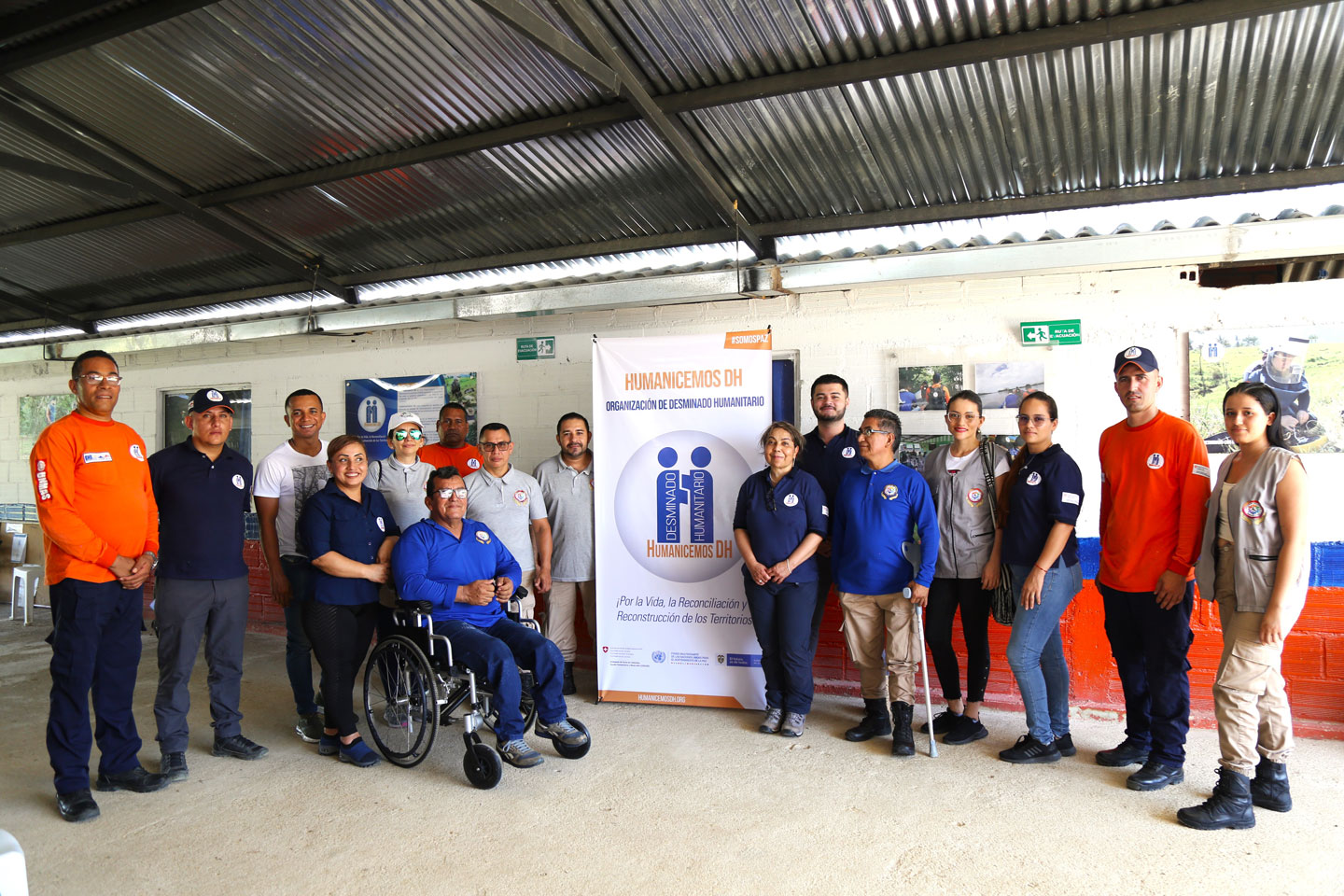
Security and development, link instrumental in advancing the transformation
While safety is one of the biggest challenges that persist in the country, given that the conflict is still active with the presence and actions of the various armed groups, the efforts of Colombia continue to be poured into the territories so that they can participate in the benefits of development, but without security, this is not possible.
It is by this, that the Fund continues to prioritize the issues of human security in your investments, and particularly in 2024 continued support for Comprehensive Action against antipersonnel mines.
Have territories free of mines is considered as the gateway to the development. In addition, to support the actions of Education on the Risk of Explosive devices, for the reduction of risks and the promotion of safe behaviours, requires operators with the technical skills necessary to deal with the threat.
In 2024, the Fund contributed to the Education policy to the Risk of Explosive devices-AERD, where it will be installed capacities in the institutional framework for ownership of the system of Accreditation of organizations and Certification of individuals in AERD.
With the support of UNICEF and the Group AICMA of the Office of the Director Commissioner of the Peace (OCCP), 30 civil society organizations (16 National Operators, 7 Organizations, ethno-territorial, and base and 7 international operators) are in the process of accreditation, to be able to perform these actions in their territories.
In addition 166 people of 16 departments have been certified in the Standard of Competency Education in the Risk of Mines RM that is awarded by the SENA in association with the Group AICMA of the Office of the Advisor to Commissioner of Peace. The formation processes implemented have allowed that 206 people in these organizations in improving their competences for the implementation of projects of AERD, under a management approach based on results.
It stands out that in 2024 he reached an agreement with the SENA, which made available to its virtual platform for the certification of facilitators. For this, the certification instruments were adapted according to the guidelines documentary of the SEINE, which will allow the sustainability of this process of certification in the long-term.
With this imposed, the Fund also provides support to the OCCP in the process of extension of the commitments arising from the ratification in Colombia of the Convention on the Prohibition of the use, Stockpiling, Production and Transfer of anti-personnel Mines and on their Destruction (of the Ottawa Treaty). The extension will include strategies to strengthen the Education on the Risk of Explosive devices, as well as an Operational Plan of Mine that part of the recognition of the current capacity of the Organizations of Humanitarian Demining (ODH), the existence of national standards for Mine Action and the characterization of the municipalities most affected.
Finally, in 2024 ended the Fund’s support to humanitarian demining operations implemented by Workshop DH, the only organization of humanitarian demining in the world formed by signatories of peace.
This Fund support enabled Workshop DH deliver his first municipality (Solita-Caquetá) free of suspicion of mines, which also achieved the clear manual 64,334 square feet, the neutralization of 1 anti-personnel mine (MAP), 2 abandoned ammunition (MUNAB) and 20 unexploded ordnance (UXO).
These results add to other in Caquetá, where in total were cleared 78.650 m2 with suspected presence of MA and/or MUSE. Benefiting 4.387 people through the Clearance Handbook of Hazardous Areas.
These efforts also enabled the community work, through the implementation of these initiatives:
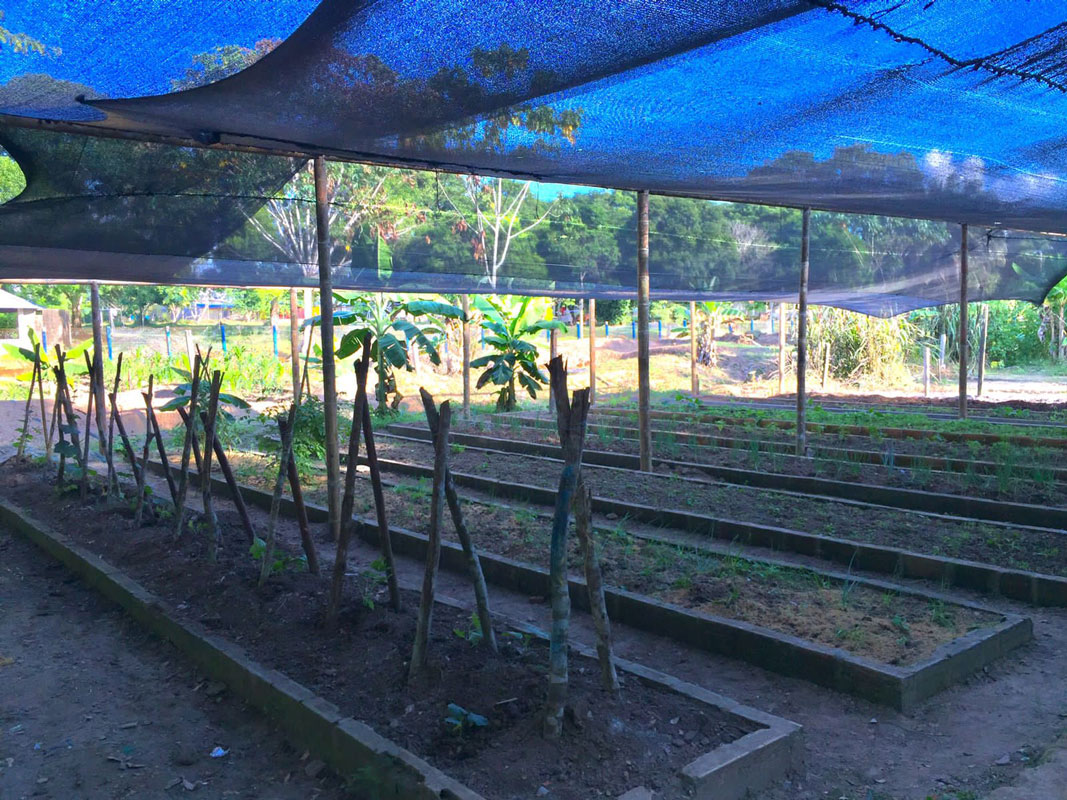
Project support teaching and demonstration of the Educational Institution Boarding School in Rural Solita, to strengthen the knowledge of farming and livestock of the students
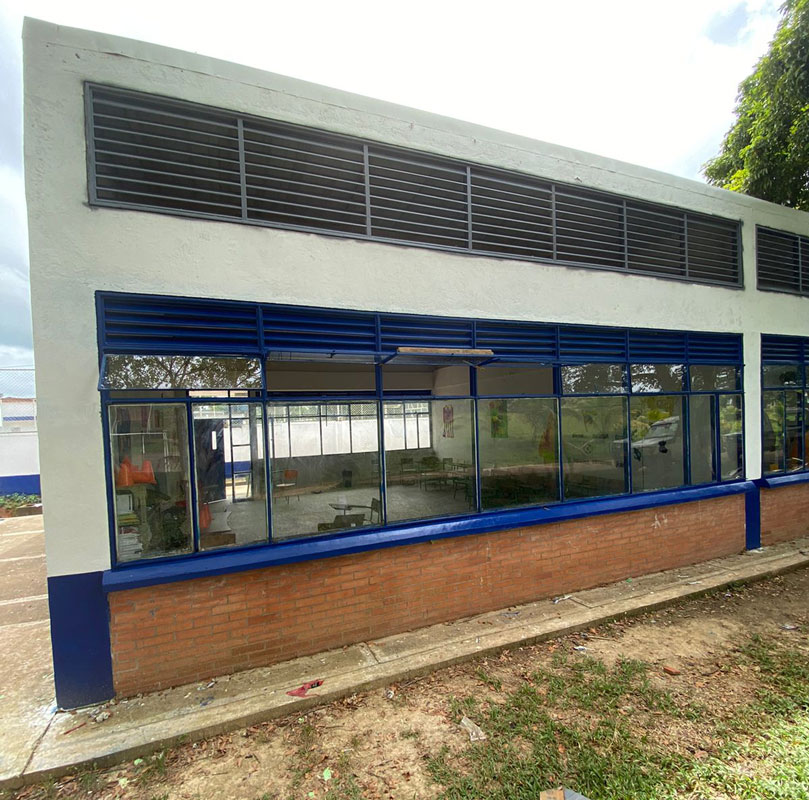
Embellishment of the facade of the Rural Educational Institution of Solita.
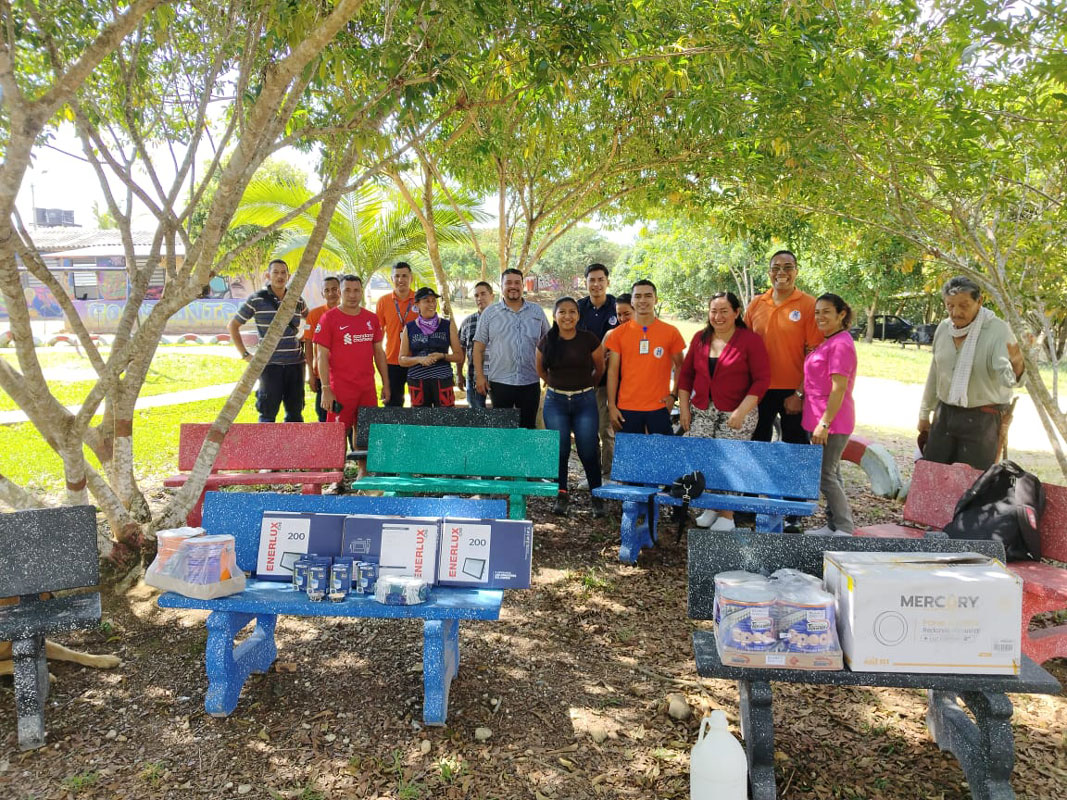
Delivery of items and supplies for the community initiative for the improvement of the park in the hamlet Hector Ramirez, benefiting the population of the village Water Beautiful in the municipality La Montañita
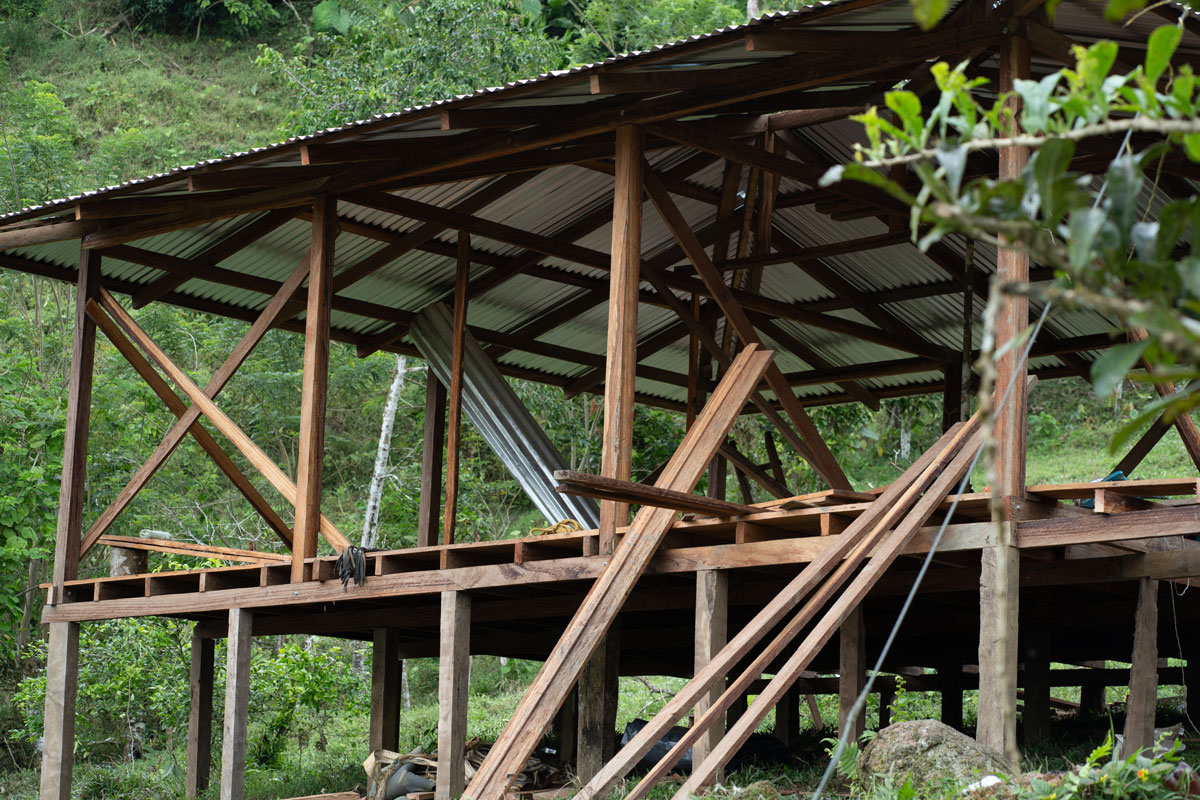
![]() Delivery of components and materials for the community initiative for the Adaptation of a kitchen of the committee of women of the villages Buenos Aires, Apartadó, Antioquia
Delivery of components and materials for the community initiative for the Adaptation of a kitchen of the committee of women of the villages Buenos Aires, Apartadó, Antioquia
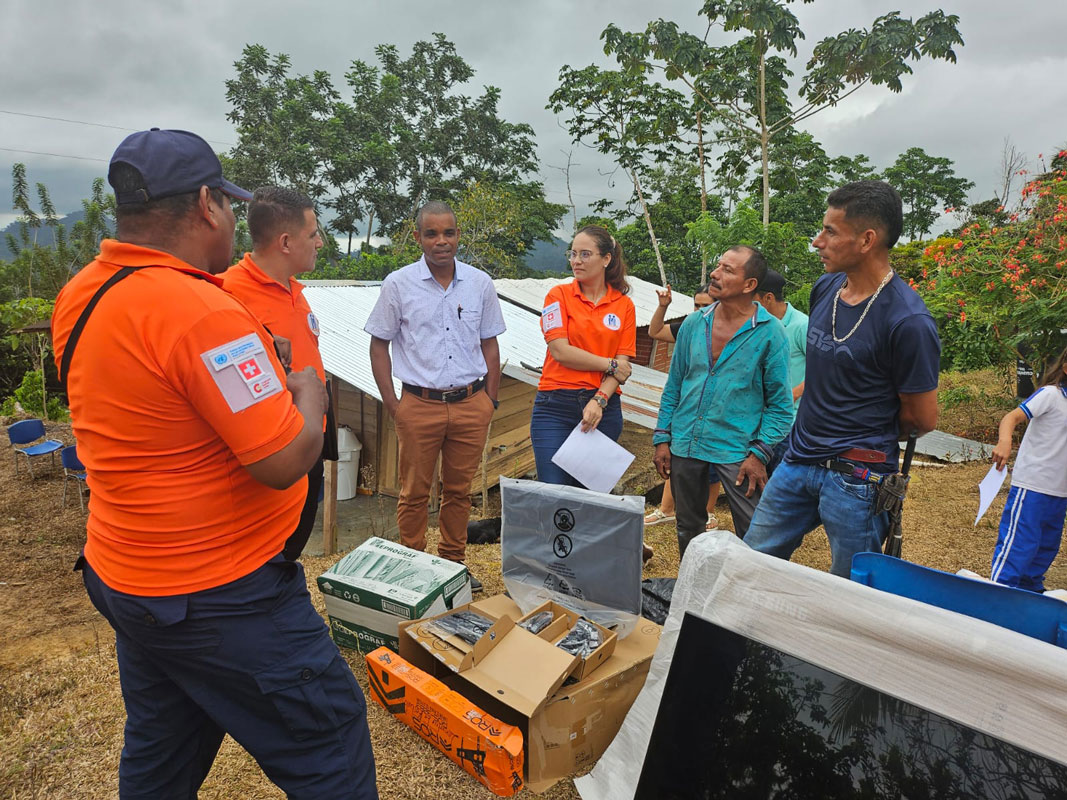
Delivery of components and materials for the community initiative to bring a computer room of the school of the La Resbalosa, Apartadó-Antioquia
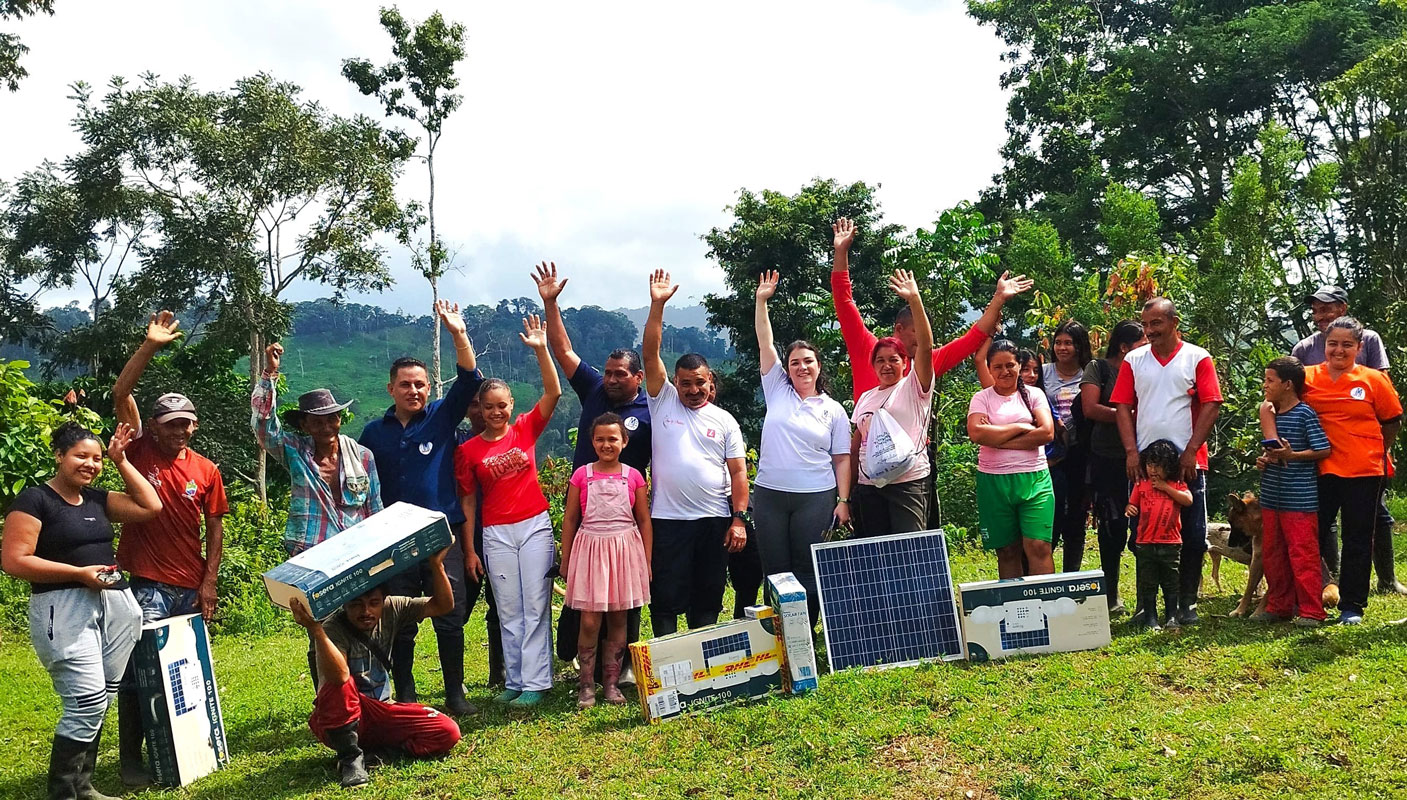
![]() Delivery of solar panels to rural families who do not have access to electricity. The access to the panels has improved the quality of life of the participants in addition to promoting the productive activities that develop on their lands.
Delivery of solar panels to rural families who do not have access to electricity. The access to the panels has improved the quality of life of the participants in addition to promoting the productive activities that develop on their lands.
In addition, 442 people have participated in awareness sessions in risk of mines, as well as appropriation territorial from concepts of security, physical and psycho-emotional. By means of radial wedges with scope in 9 municipalities of the Caquetá have been carried messages of safe behaviour in front of the presence of Explosives (AE).
It spurred the creation of environments, equitable and inclusive through consultation with the host communities that were able to express their expectations and concerns related to the territories mined, which enhanced the confidence and positioned the needs of women and girls to assume the duties of the care of victims of mines. In addition, Workshop DH put the pattern to ensure environments respectful, free of discrimination and GBV to generate reflections and commitments with its operational and administrative staff which allowed them to apply good practices focused on the care economy, which seeks to recognise, redistribute and reduce[4] the loads that enable, promote personal environments, family, and community on an equitable and fair for women to have free time and quality.
[4]The triple R seeks to recognise, redistribute and reduce the work of care. This framework, based on the ideas of Nancy Fraser seeks to address gender inequalities in the distribution of that historically lead the women in private spaces.
These actions are very significant for the community, because not only enabled the trust between these, the demining operator and institutional framework, but it results in the effective enjoyment of women, children, youth and the general population of the territories free of mines, which allow the access to basic goods and services such as education and food security projects and productive.
Finally, Workshop DH finds that the activities that they have played since 2017 to be recognized as a tow ahcer, for this in 2024 succeeded in the preparation of a document Procedure Works Works and Activities with Content Repairer tow ahcer in a Comprehensive Action Against antipersonnel, filed with the executive secretary and the team follow-up of remedial measures and restorative of the Special Jurisdiction for Peace (JEP), in waiting for your comments and answers to move forward in the process.
Interview to the director of Workshop DH on the strategic input of the Corporation to peace, reconciliation and security of the territories.
Strategic products generated that contribute to the decision making, the key to the transformation of the territory.
- Index of Footprint for Human Space to Catatumbo. Offer Environmental and EEP
- CONPES AICMA.



